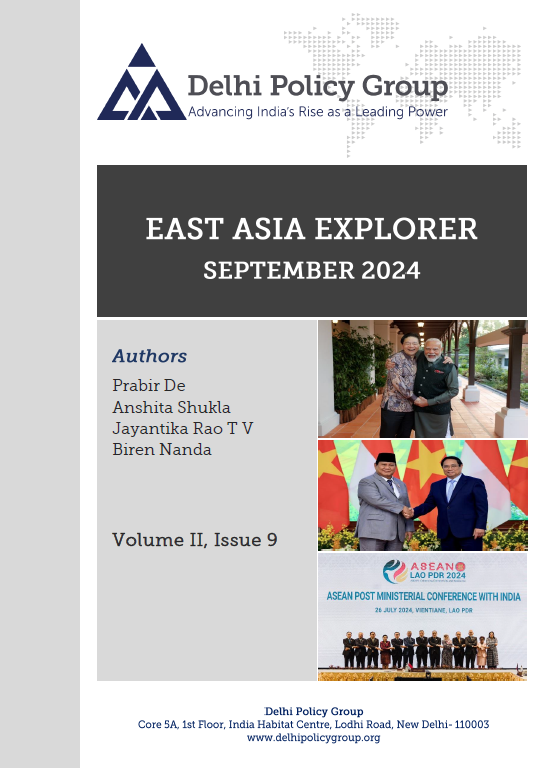East Asia Explorer
The East Asia Explorer tracks evolving geopolitical trends, emerging security challenges, and progress towards regional integration in East Asia. It focuses on the ASEAN grouping, domestic and foreign policy developments in countries of East Asia and Oceania, great power contestation in the region, and India’s relations with ASEAN and its member countries.
In this issue, Dr. Prabir De analyses ASEAN-India bilateral relations in the run-up to the 21st ASEAN-India Summit scheduled for October 10-11, 2024, in Vientiane. The author highlights India’s recent regional engagements with ASEAN, major critical economic challenges that India faces in ASEAN, and the future of the ASEAN-India relationship.
Anshita Shukla reviews Prime Minister Modi’s visit to Brunei and Singapore from September 3 - 5, 2024, which reflected India’s commitment to its ‘Act East’ policy. She highlights the outcomes of Prime Minister Modi’s visits, recent developments in bilateral relations with Brunei and Singapore, and implications of these visits for India’s ‘Act East’ policy.
Jayantika Rao examines Indonesia’s likely foreign policy direction under President-elect and incumbent Defence Minister, Prabowo Subianto. She highlights the distinguishing elements of Prabowo’s leadership from that of his predecessor, Jokowi Widodo, and the relative shift in the foreign policy focus from economic development to defence and security. The brief explores how this evolving trend could shape Indonesia’s role as a middle power, and its long-term strategic relationships.
Amb. Biren Nanda in his brief highlights the long-term geopolitical trends in Southeast Asia amidst escalating US-China competition in the region. He outlines the critical concerns of the region arising from increasing tensions between their main security provider – the United States - and their most important economic partner – China. He concludes by projecting the short to medium term economic and regional trends.
To read this East Asia Explorer, Vol. II, Issue 9, please see the PDF attached.



